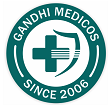Renal Cell Carcinoma, commonly known as kidney cancer or RCC, occurs when the uncontrolled division of cells crowds the linings of the tubules leading to the kidney. It is a fast-spreading type of cancer that can spread to other organs like the lungs and other surrounding organs.
What causes RCC?
There is uncertainty within medical circles about the exact cause of RCC. It can be found in almost anyone but is more commonly found in men aged above 50. Some of the most common sources of RCC include a family history of RCC, dialysis treatment, obesity, smoking, polycystic kidney disease that causes cysts or growth in the kidney, and use of medications to fight other conditions like arthritis.
Patients with RCC do not exhibit symptoms initially. However, with the progression of the disease, patients may exhibit symptoms like excessive pain on the sides, weight loss, fatigue, vision problems, blood in urine, a lump in the abdomen, and excessive hair growth in women.
Diagnosis for RCC
After an analysis of the patient’s medical history and symptoms, if the doctor believes that the patient might have RCC, and then some tests are conducted, which include the following:
- Complete Blood Count, where a blood sample is collected from the patient and sent to the laboratory for further analysis.
- CT Scan where the kidney is scanned and the doctor checks for any abnormal growth.
- Abdominal and Kidney Ultrasounds, where the image of the kidney is produced with sound waves to detect any abnormal growth or tumors in the kidney.
- Urine Test where the patient’s urine samples are collected and tested for the presence of cancerous cells.
- Biopsy or the removal of a small part of the kidney tissue is sent to the pathology lab for further testing to determine the presence of cancerous cells.
If confirmed in these tests that a patient has RCC, further tests known as staging tests are conducted to determine how extensive the spread of the infection is. These include a chest X-Ray, PET scan, and bone scan.
Treatment for RCC
RCC can be treated through conventional cancer treatment methods like surgery, chemotherapy, and radiation, biologic and targeted therapy. Anti-cancer drugs like Sutekast have become a staple in cancer medication. Sutekast is a salt that inhibits the motion of receptor tyrosine kinases. Activating these receptors means cutting down tumor vascularisation and enhancing cancer cell apoptosis, which leads to reduced tumors. Sutekast intake must be done for four weeks with a 15 schedule or according to the doctor’s prescription. This is because the drug is used to treat other diseases like pancreatic neuroendocrine tumors and gastrointestinal stromal tumors.








 +91-9811604444/ 9811604424/ 9999064250
+91-9811604444/ 9811604424/ 9999064250  8(800)100-47-90
8(800)100-47-90






